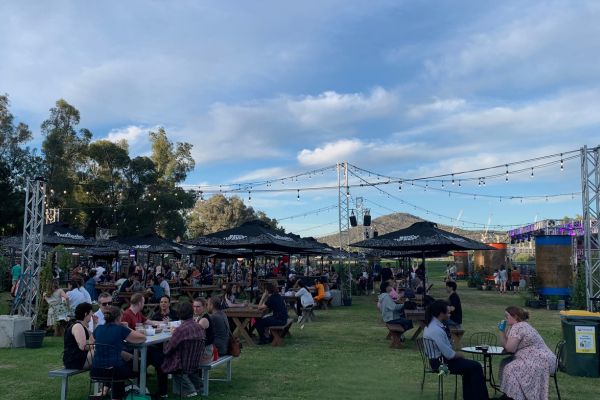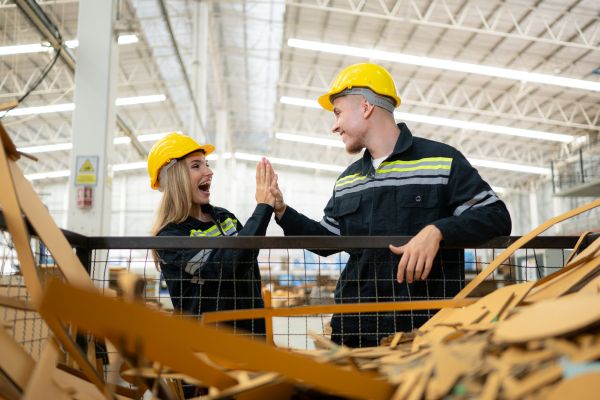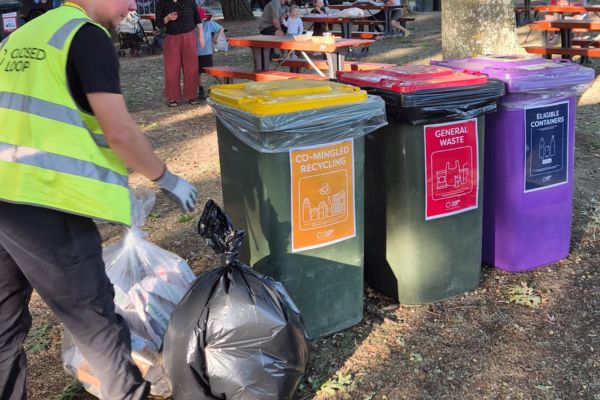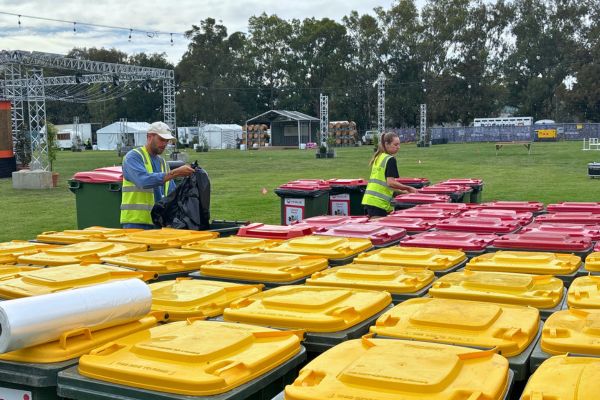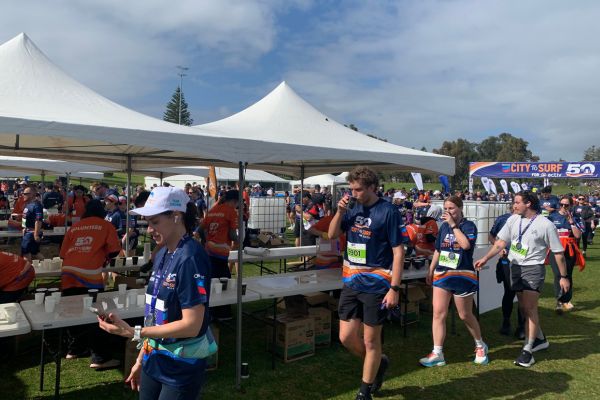Your guide to food packaging materials
Running a restaurant or café involves making many decisions. One of them being picking the right type of takeaway packaging for the different offerings you have on your menu. To aid you in the decision, we’ve compiled a guide to common takeaway packaging materials.
Kraft
Kraft packaging is made from paper pulp from wood which typically makes them recyclable (when there’s little contamination), home or commercially compostable depending on the facilities available. Since it’s made of virgin materials, it provides good strength and food safety. Kraft is a great take-away option, however if you serve greasy and oily foods, white kraft may be a better solution as holds oils and fats better.
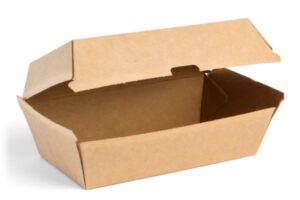
White kraft
White kraft is kraft, but the material has gone through a series of treatment process. One of the benefits of white kraft is that it allows for higher detailed printing since the base is white.
Depending on the process, white kraft typically does better with oil and can remain strong even after absorbing oil.
They may also be recyclable, home compostable and commercially compostable, but it’s always good to check with your supplier.
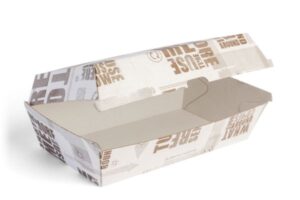
Bagasse
Bagasse packaging is made from plant-based materials. Different suppliers process and source their material differently. While being “plant-based” makes this material sound more sustainable, bagasse cannot be recycled in traditional recycling systems (i.e. co-mingled recycling streams).
Plant-based materials are also likely to emit carbon dioxide (which can contribute negatively to climate change) when they are not disposed of appropriately.
Bagasse can be used if it is certified commercial compostable and your consumers have access to a commercial composter (which is limited in Australia). In that case, kraft or white kraft may be a more suitable option.
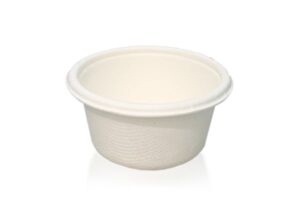
Sugarcane
Sugarcane packaging is a form of bagasse packaging but made specifically from sugar cane pulp. The same recommendations apply to this type of packaging as bagasse packaging. Which is, it can be used if it is certified commercial compostable and your consumers have access to a commercial composter (which is limited in Australia). Likewise, kraft or white kraft may be a more suitable option.
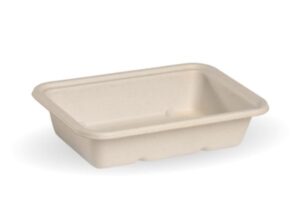
Birchwood
As the name suggests, this material is made from birchwood, a type of wood. It is typically used for cutlery, and we recommend choosing FSC® certified birchwood cutlery to ensure that they are made from sustainably sourced wood. FSC chain of custody certification verifies that FSC-certified material has been sourced from FSC-certified forest and separated from ineligible and unacceptable material throughout the supply chain (i.e. from forest to warehouse). Learn more about the FSC here.
Birchwood packaging may also hold other certifications such as the ABA certified commercial compostable certification to prove that they are commercially compostable.
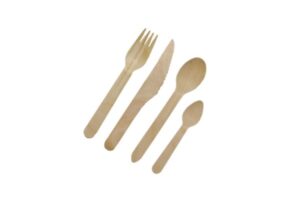
Bioplastic
Bioplastic is plastic derived from plant-based materials rather than from petroleum. Most bioplastic products claim to be biodegradable, but that does not mean they are more sustainable. Just like any other plant-based product, it must be disposed effectively. If sent to landfill, it can take hundreds of years for them to break down and they often emit carbon dioxide. These plastics will be labelled with Plastic Identification Code 7 which identifies all other kinds of miscellaneous plastics resins that do not categorise as 1-6.
Only choose bioplastic packaging that are ABA commercial compostable certified and only if you or your consumers will have access to a commercial composting facility. Where possible, kraft, white kraft or rPET may be a more sustainable option.
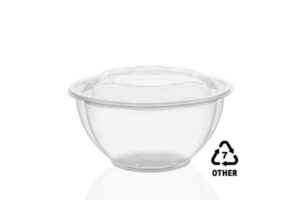
PLA
PLA (polylactic acid) is a form of bioplastic made from plant-based materials. They pose the same issue as bioplastics and can take a long time to breakdown. PLA is also identified by Plastics Identification Code 7. Likewise, only choose ABA commercial compostable certified PLA and ensure you or your consumers will have access to a commercial composting facility. In this case, kraft, white kraft or rPET may be a more sustainable option.
Aqueous barrier lining
Aqueous barrier lining is a treatment used on fibrous materials to replace traditional polyethylene (PE) lining. An aqueous barrier uses a treatment of water and other chemicals in paper pulp to provide strength and waterproofing. Common uses of an aqueous barrier lining is on paper cups, meaning they can be certified home compostable through the ABA, unlike traditional PE lined products. If you are using single-use paper cups, we encourage you to recycle them with Simply Cups.
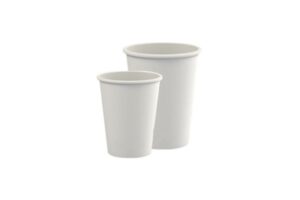
PET
PET (polyethylene terephthalate), identifiable as Plastics Identification Code 1, is the most used plastic in consumer foodservice products. This plastic is recyclable if cleaned before placing in kerbside recycling bins.

rPET
rPET is recycled PET plastic, a material that is considered more sustainable than virgin PET and still can be recycled through kerbside recycling bins.
PP
PP plastic (polypropylene), identifiable as Plastics Identification Code 5 is another popular plastic that is used in consumer foodservice products and is recyclable. However, we recommend avoiding PP that is dyed black as they are not always recycled. This is because they cannot be picked up by the technology used to sort materials in certain recycling facilities. PP, PET and/or rPET are suitable food packaging materials if reusable options have been explored.

What take-away packaging should I use?
Through understanding the different materials, it’ll help you make more sustainable decisions based on which material causes the least impact. For example, recycling is typically better than composting and composting is better than sending to landfill. Learn more about compostable packaging in a separate blog, where we explore whether compostable food packaging is the right option for your business.
We understand as well that many other factors such as cost, type of food, flexibility, storage, regulations and convenience play a role in decision making as well.
The packaging ranges previously sold by Closed Loop, plus much more, can now be sourced through PAC Trading. Contact PAC via email at dispatch@pactrading.com.au or their website https://www.pactrading.com.au.




